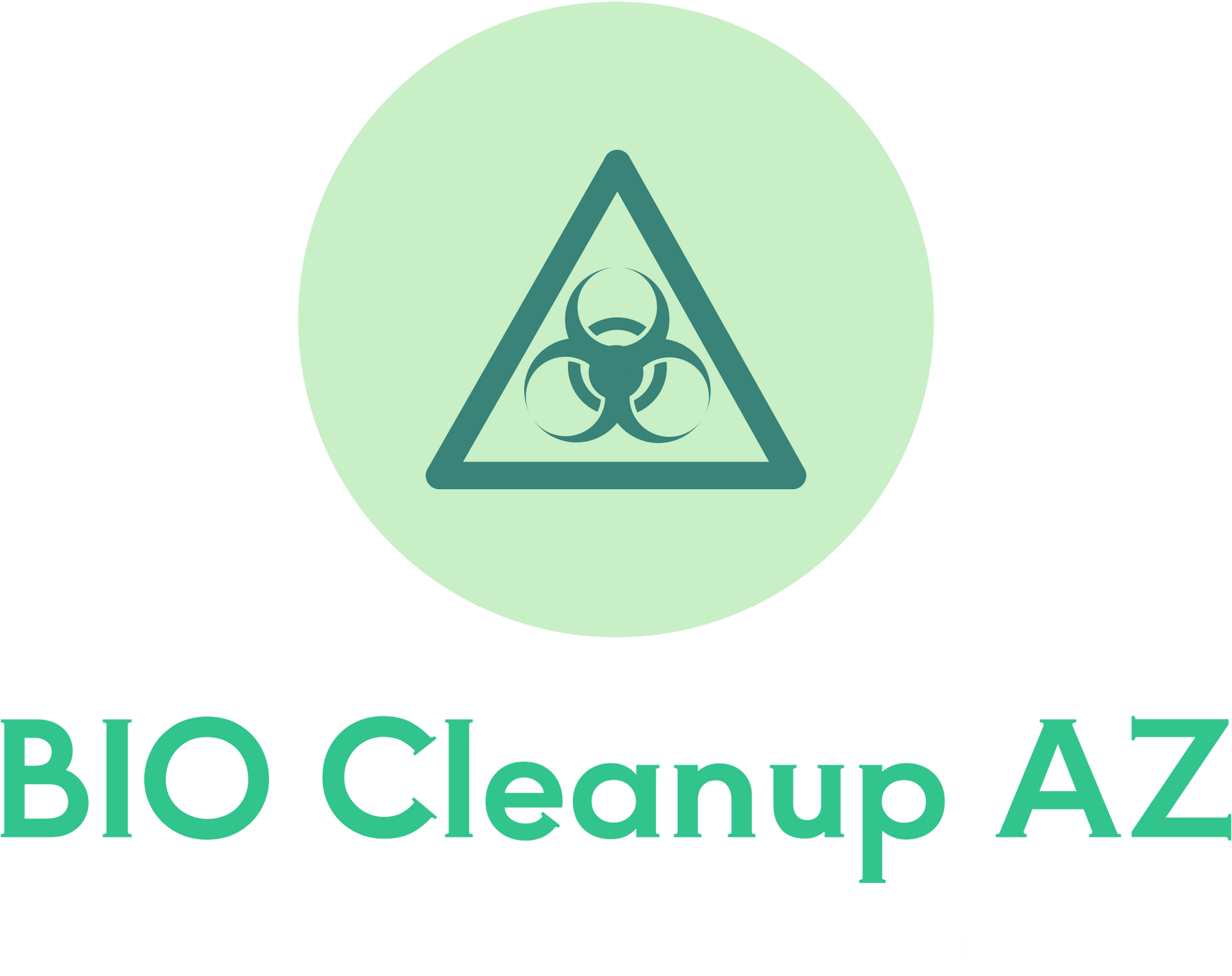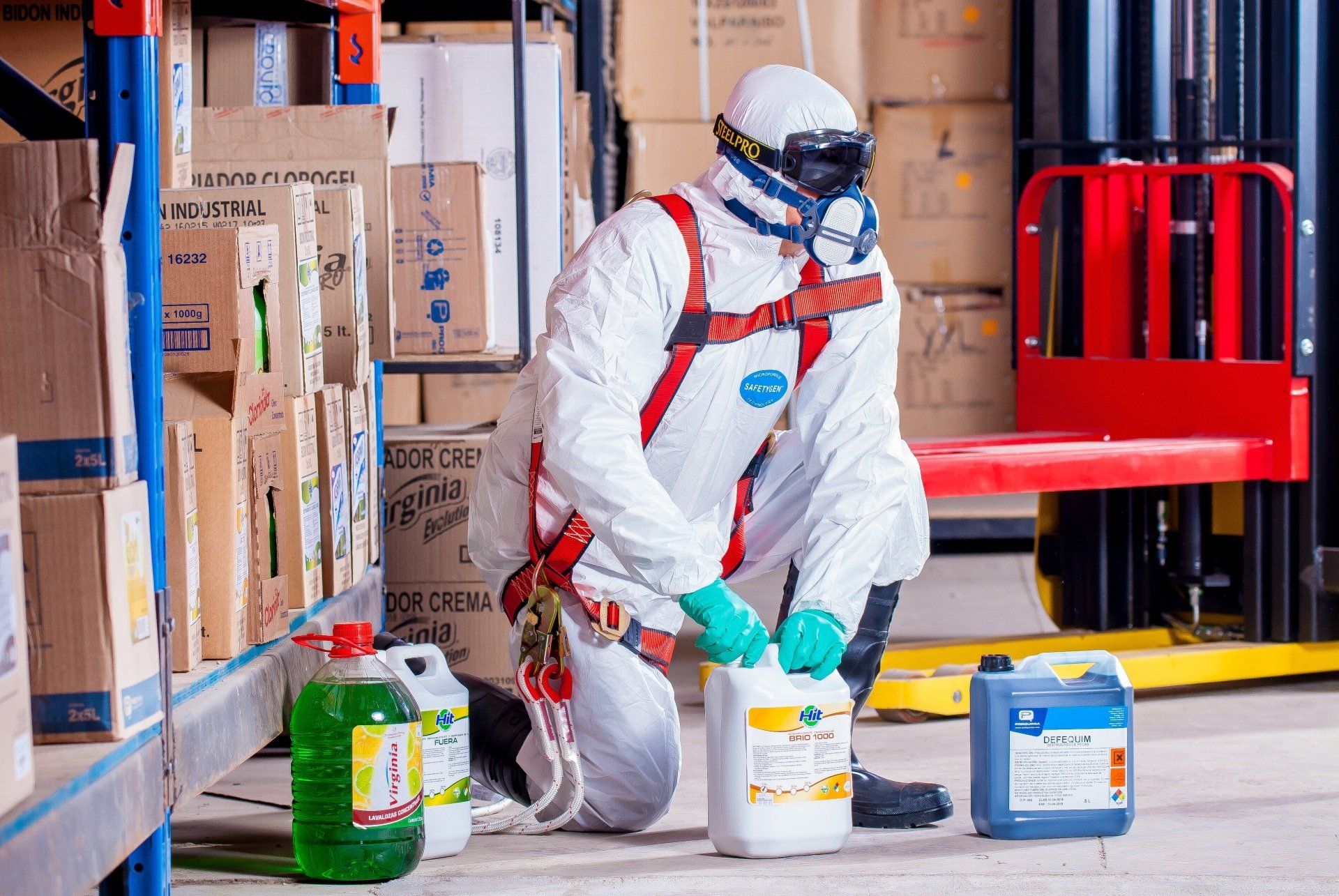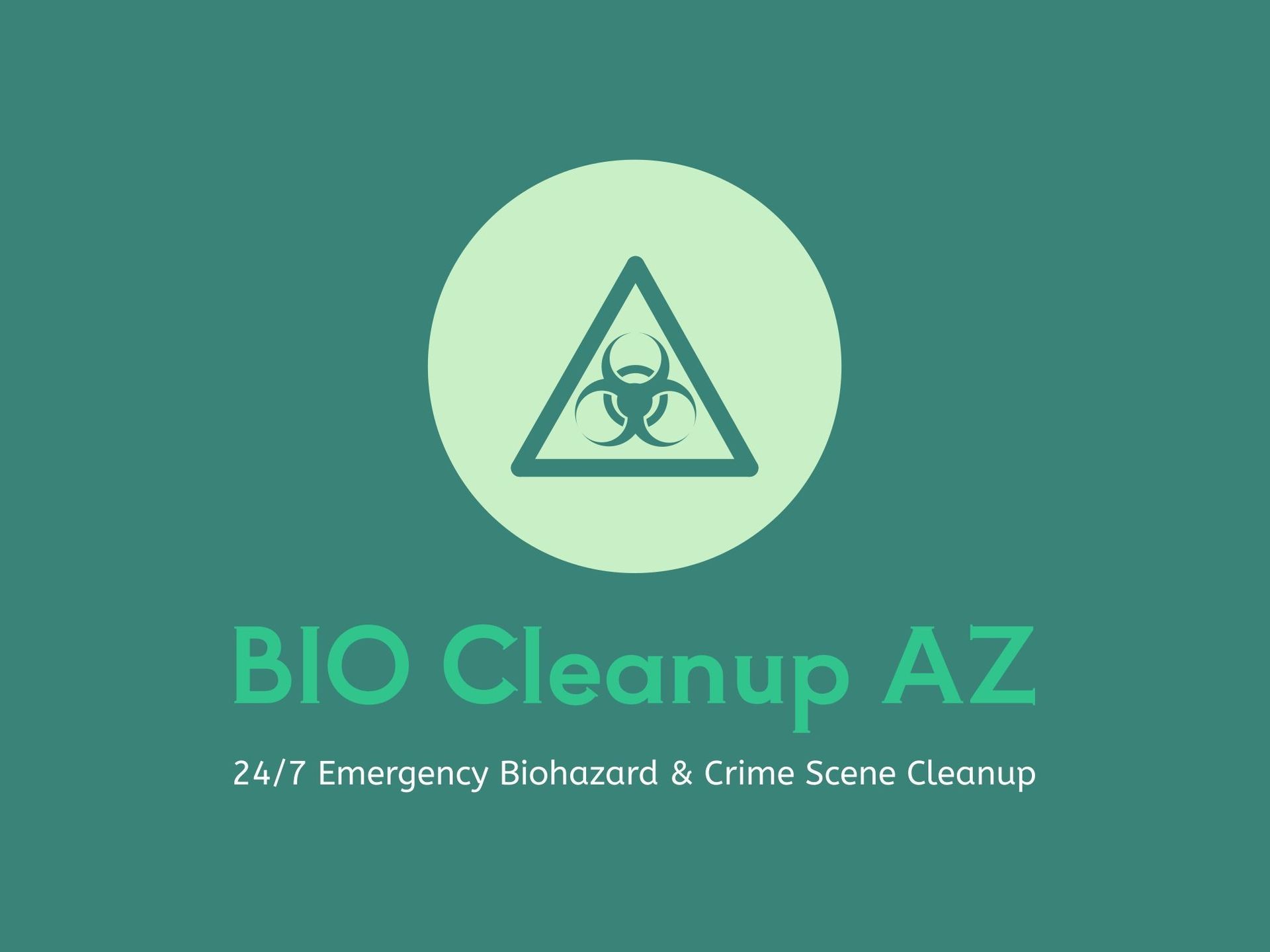Post Title
Biohazard Disposal Regulations for Crime Scenes in Phoenix

Disposal Regulations for Crime Scenes in Phoenix
In the aftermath of a crime, the yellow police tape eventually comes down. But the real work of restoring safety is just beginning. One crucial aspect often overlooked is the proper disposal of biohazardous materials. In Phoenix, where the scorching heat can accelerate decomposition and intensify health risks, understanding and adhering to biohazard disposal regulations is not just a legal requirement—it's a matter of public safety.
The Importance of Proper Biohazard Disposal in Phoenix
Unique Challenges in the Valley of the Sun
Phoenix's climate adds urgency to biohazard disposal:
- High temperatures accelerate bacterial growth
- Dry air can cause biological materials to become airborne more easily
- Dust can mix with biohazardous materials, complicating cleanup
These factors make strict adherence to disposal regulations crucial for public health.
Protecting Public Health and the Environment
Proper disposal of biohazardous materials from crime scenes is essential for:
- Preventing the spread of bloodborne pathogens
- Protecting water sources from contamination
- Ensuring the safety of waste management workers
- Maintaining the overall health of the Phoenix community
Understanding Biohazardous Waste
What Qualifies as Biohazardous Waste?
In the context of crime scene cleanup, biohazardous waste typically includes:
- Blood and bodily fluids
- Tissues and organs
- Items saturated with blood or other potentially infectious materials (OPIM)
- Sharps (e.g., needles, broken glass) contaminated with biohazardous materials
The Risks of Improper Handling
Mishandling biohazardous waste can lead to:
- Transmission of diseases like HIV, Hepatitis B, and Hepatitis C
- Environmental contamination
- Legal penalties and fines
- Reputational damage for businesses
Federal Regulations Governing Biohazard Disposal
OSHA Standards
The Occupational Safety and Health Administration (OSHA) sets federal standards for handling biohazardous materials.
Key requirements include:
- Use of proper personal protective equipment (PPE)
- Training for all employees handling biohazardous waste
- Proper labeling and containment of biohazardous materials
EPA Guidelines
The Environmental Protection Agency (EPA) regulates the disposal of medical waste, which includes many types of crime scene biohazards.
Important points:
- Specific treatment methods required for different types of waste
- Regulations on transportation and final disposal of treated waste
Arizona State Regulations
Arizona Department of Environmental Quality (ADEQ)
ADEQ oversees biohazardous waste management in Phoenix and throughout Arizona.
Key regulations include:
- Licensing requirements for biohazardous waste transporters
- Specific packaging and labeling requirements
- Documentation and tracking of waste from generation to disposal
Arizona Administrative Code
Title 18, Chapter 13, Article 14 of the Arizona Administrative Code details specific requirements for biohazardous medical waste management.
Important aspects:
- Definition of biohazardous medical waste
- Storage and containment specifications
- Treatment and disposal methods
-
Phoenix City Ordinances
Chapter 27 of the Phoenix City Code
This chapter addresses solid waste management, including provisions for biohazardous waste.
Key points:
- Prohibitions on disposing of biohazardous waste in regular trash
- Requirements for contracting with licensed waste haulers
- Potential fines and penalties for violations
The Biohazard Disposal Process for Crime Scenes in Phoenix
1. Assessment and Planning
Before cleanup begins:
- Identify all biohazardous materials present
- Develop a comprehensive disposal plan
- Ensure all necessary equipment and containers are available
2. Containment and Packaging
Proper containment is crucial:
- Use leak-proof, puncture-resistant containers
- Double-bag all biohazardous waste
- Clearly label all containers with biohazard symbols
3. On-Site Treatment (if applicable)
Some companies may use on-site treatment methods:
- Chemical disinfection for certain materials
- Autoclaving for items that can withstand high heat
- Note: On-site treatment must still comply with all regulations
4. Transportation
Moving biohazardous waste requires care:
- Use vehicles specifically designed for biohazardous waste transport
- Ensure proper documentation accompanies the waste
- Follow predetermined routes to minimize risk
5. Final Disposal
Options in the Phoenix area include:
- Incineration at licensed facilities
- Chemical treatment at approved waste management sites
- Landfills specifically equipped to handle treated biohazardous waste
6. Documentation and Record-Keeping
Maintaining thorough records is essential:
- Keep detailed logs of all waste generated, transported, and disposed of
- Retain records for at least three years (or longer, depending on specific regulations)
- Be prepared for potential audits by regulatory agencies
Common Mistakes and How to Avoid Them
Inadequate Training
Problem: Staff without proper training handling biohazardous materials. Solution: Invest in comprehensive, ongoing training programs for all employees involved in crime scene cleanup.
Improper Packaging
Problem: Using regular trash bags or non-approved containers for biohazardous waste. Solution: Always use containers specifically designed and approved for biohazardous waste.
Incomplete Documentation
Problem: Failing to maintain proper records of waste disposal. Solution: Implement a robust system for tracking and documenting every step of the disposal process.
Mixing Waste Types
Problem: Combining biohazardous waste with regular trash or other types of hazardous materials. Solution: Clearly separate different types of waste and use distinct, properly labeled containers for each.
The Role of Professional Crime Scene Cleanup Companies
Expertise and Compliance
Reputable crime scene cleanup companies in Phoenix:
- Stay up-to-date with all relevant regulations
- Invest in proper equipment and training
- Handle all aspects of biohazard disposal, ensuring compliance
Peace of Mind
For property owners and families:
- Assurance that all legal requirements are met
- Reduced risk of exposure to hazardous materials
- Professional documentation for insurance or legal purposes
A Phoenix Health Inspector's Perspective
Maria Gonzales, a senior health inspector with the Maricopa County Department of Public Health, shares her insights:
"In my 15 years on the job, I've seen the consequences of improper biohazard disposal firsthand. Phoenix's unique climate makes it even more critical to follow regulations to the letter. Professional crime scene cleanup companies play a vital role in protecting our community's health."
Looking to the Future: Emerging Technologies and Regulations
Advancements in Disposal Methods
New technologies on the horizon:
- More efficient on-site treatment options
- Eco-friendly disposal methods
- Improved tracking systems using blockchain technology
Potential Regulatory Changes
Stay informed about:
- Stricter environmental standards
- Increased focus on sustainable disposal practices
- Potential new federal guidelines for crime scene waste
Conclusion: The Importance of Compliance and Professionalism
Navigating the complex world of biohazard disposal regulations in Phoenix requires expertise, diligence, and a commitment to public safety. While the rules may seem daunting, they serve a crucial purpose: protecting the health of our community and the environment.
For property owners, law enforcement agencies, and anyone else dealing with the aftermath of a crime scene, partnering with reputable, licensed crime scene cleanup professionals is not just a convenience—it's a responsibility. These experts ensure that every step of the biohazard disposal process adheres to federal, state, and local regulations, providing peace of mind during an already challenging time.
Remember, in Phoenix's unique desert environment, proper biohazard disposal is more than just following rules—it's about safeguarding our community's well-being. By understanding and respecting these regulations, we all play a part in keeping Phoenix safe, clean, and resilient in the face of difficult circumstances.


